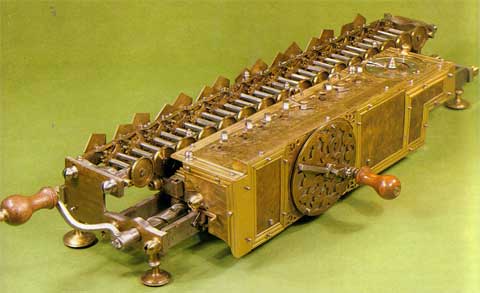Almost all of us use a computer. You can't do your homework easily without the help of a computer. You will not be searching for thick books in the library and waist your precious time in finding just one topic the whole day. But do you really know where your computer came from? Or you just use them without even knowing what's their history?
That video I showed you was just a short peek about the history of computers.
Now, let’s read more about the history of computers.
Humans
· The earliest form of counting was with fingers
· Other objects such as rocks or twigs were used to represent groups of numbers.
· The idea of making mathematics easier was unheard of at the time.
Abacus
· The oldest known form of computing is the abacus.
· The oldest surviving abacus was discovered in 300 B.C.
· Users moved beads to perform calculations; each column repeated a different multiple of ten.
Pascaline
· Blaise Pascal was the inventor of the first digital computer called the PASCALINE.
· The Pascaline used hand-spun mechanical wheels to input numbers, then outputted them as the answer
Step Reckoner
· Gottfried Leibniz created the Step Reckoner as an improvement of pascaline.
Difference Engine
· Charles Babbage’s Difference Engine was a mechanical calculator that operated automatically.
Analytical Engine
The Analytical Engine, an important step in the history of computers, is a design for a mechanical general-purpose computer first described by English mathematician Charles Babbage in 1837. It was the successor to Babbage's difference engine, a design for a mechanical calculator. The Analytical Engine incorporated an arithmetical unit, control flow in the form of conditional branching and loops, and integrated memory, making it the first Turing-complete design for a general-purpose computer. Babbage was never able to complete construction of any of his machines due to conflicts with his chief engineer and inadequate funding. It was not until 100 years later, in the 1940s, that the first general-purpose computers were actually built.
Punched Cards-Tabulating Machine
The tabulating machine was an electrical device designed to assist in summarizing information and, later, accounting. Invented by Herman Hollerith, the machine was developed to help process data for the 1890 U.S. Census. It spawned a larger class of devices known as unit record equipment and the data processing industry.
Those were the computers from the first computer to the computers in the first generation.
Things I learned
Because of this, I know where my favorite gadget came from. I just wonder what will be the computer look like after a hundred of year...
Hmm.. Her's a video from youtube that amazed me of the future computers.
wow... amazing... hehe.






No comments:
Post a Comment